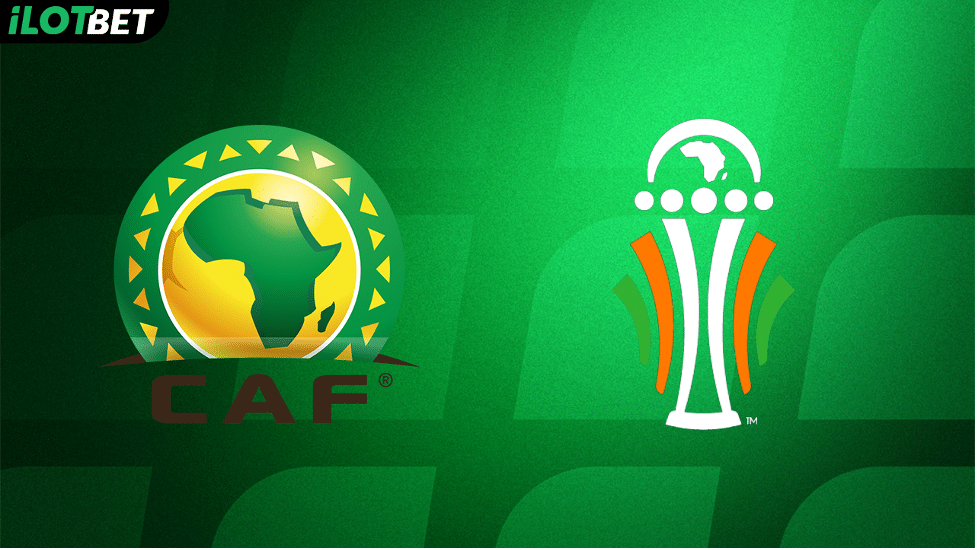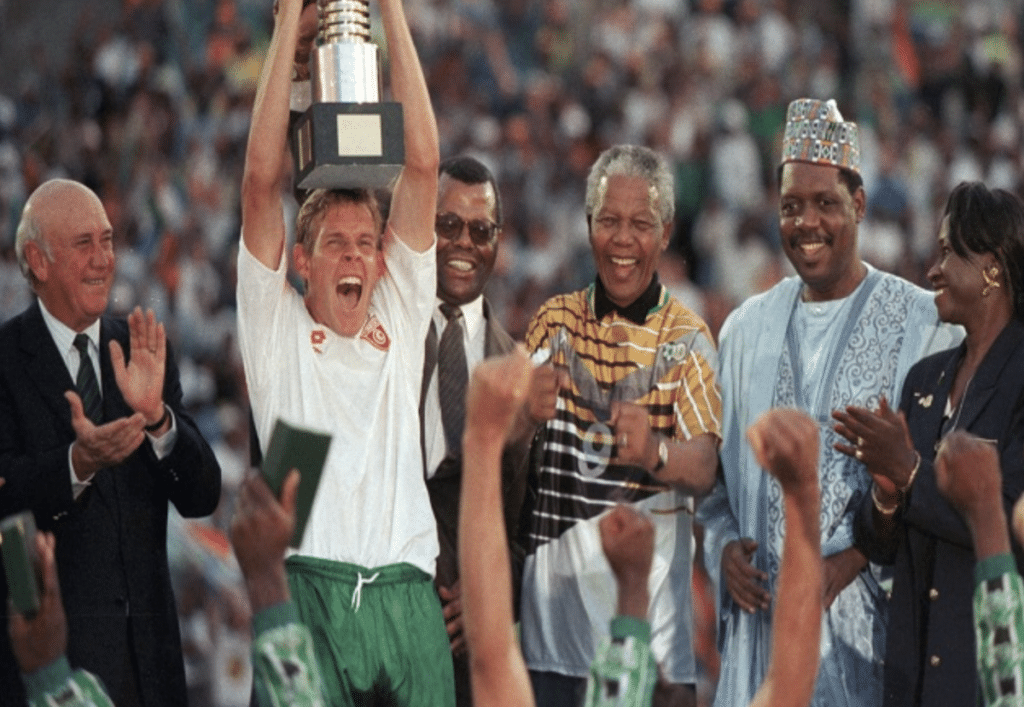The Africa Cup of Nations, commonly known as AFCON, has been the stage for some of the most thrilling and memorable moments in football history. From stunning goals to dramatic comebacks, this prestigious tournament has provided fans with excitement and entertainment for decades. In this article, we will explore some of the unforgettable moments that have captivated football fans across the globe.

Pioneering Glory: Egypt’s Inaugural Triumph in 1957
The genesis of AFCON witnessed a historic moment in 1957 when Egypt, under the scorching Sudanese sun, secured the first-ever title, setting the stage for a legacy that would endure through the history of African football. Held in Khartoum, Sudan, the tournament showcased Egypt’s footballing prowess and laid the foundation for their future dominance.
In the semifinals, Egypt faced the host nation, Sudan, in a fiercely contested match. Overcoming the challenges of an intense encounter, Egypt emerged victorious with a 2-1 win, earning them a spot in thehistoric final.
The grand finale unfolded against Ethiopia, and it became a showcase of Egyptian excellence. El-Diba, a name etched in the early chapters of AFCON history, left an indelible mark by scoring all four goals in a resounding 4-0 victory.
As the current record champions, the 1957 triumph laid the cornerstone for Egypt’s unparalleled success in the tournament. It was a proclamation of their footballing legacy and a prelude to the countless moments of glory that would follow in the years to come. Egypt’s inaugural victory remains a cherished chapter in AFCON’s history, evidence of the enduring prowess of a nation that set the standard for excellence in African football.
The Rumble in Lagos: Nigeria’s Battle against Cameroon in 2000
The AFCON final in 2000 between Nigeria and Cameroon is remembered as one of the most intense and fiercely contested matches in the tournament’s history. The game, held in Lagos, Nigeria, showcased the fierce rivalry between the two nations and provided fans with a display of compelling football.
Cameroon stormed to a two-goal lead within the first 31 minutes, with Samuel Eto’o and Patrick Mboma finding the back of the net. However, Nigeria fought back to narrow the deficit to one goal before halftime through Raphael Chukwu’s strike, before Jay-Jay Okocha’s long-range equalizer just after the break set the stage for a thrilling second half. As both teams pushed for a winner, emotions ran high, resulting in a clash between the players in the 87th minute. The game was temporarily suspended as chaos ensued on the pitch.
Eventually, order was restored, and the match continued. In the dying seconds of the game, Nigeria’s goalkeeper, Ike Shorunmu, made a crucial save to deny Cameroon a last-minute winner. The match ended 2-2, sending the final into extra time. Despite both teams creating chances, the score remained level, leading to a penalty shootout.
In the shootout, Cameroon emerged victorious, with Rigobert Song scoring the decisive penalty that secured a 3-4 win. The scenes of celebration that followed showcased the passion and pride both teams had displayed throughout the match. The Rumble in Lagos has since become an iconic moment in AFCON’s history, reminding us of the passion and intensity this tournament evokes.
The Rise of Zambia: Triumph amidst Tragedy in 2012
In 2012, Zambia’s national team experienced a remarkable journey that captured the hearts of football fans worldwide. This campaign was about more than just football; it was a powerful testament to the human spirit and the ability of a team to unite a nation in the face of adversity.
The tournament took place in Gabon and Equatorial Guinea, and Zambia’s path to the final was filled with ups and downs. However, it was their meeting with the tournament favorites, Côte d’Ivoire, in the final that defined their remarkable run.
After a goalless 120 minutes, the match went into a penalty shootout. Playing against a star-studded Ivorian team led by Didier Drogba, Zambia displayed immense composure and confidence. They converted each of their penalties flawlessly, with Kennedy Mweene, the Zambian goalkeeper, even scoring one himself. In the end, Zambia emerged as the champions, winning 8-7 in the shootout.
This triumph held special significance for Zambia, as it came 19 years after a tragic plane crash that claimed the lives of the entire national team. Their victory in 2012 was not only a celebration of their footballing prowess but also a tribute to the fallen heroes and a symbol of hope and resilience.
The Pulse of Soweto: South Africa’s Historic Triumph in 1996
In 1996, South Africa made history by hosting and winning the AFCON, marking a significant moment in the country’s football narrative. The tournament’s climax occurred in the iconic Soccer City stadium in Soweto, Johannesburg, where the Bafana Bafana faced Tunisia in a memorable final.
Amidst a sea of jubilant fans, South Africa’s striker, Mark Williams, etched his name in AFCON folklore. Williams struck twice in the final 15 minutes, securing a hard-fought 2-0 victory for South Africa. The sheer elation among the home crowd and the symbolic significance of the triumph post-apartheid made this moment a cornerstone in the tournament’s history.
The Golden Generation: Ivory Coast’s AFCON Glory in 2015
Ivory Coast’s quest for AFCON glory reached its pinnacle in 2015 when they faced Ghana in the final in Bata, Equatorial Guinea. The match ended goalless after extra time, setting the stage for a tense penalty shootout that would decide the champion.
In a showcase of nerves of steel, the Ivory Coast players converted all their penalties, with goalkeeper Boubacar Barry etching his name into the annals of football history. Barry not only made crucial saves but also stepped up to take and score the winning penalty, securing a 9-8 victory in the shootout. This triumph marked the end of a long AFCON drought for Ivory Coast and highlighted the resilience of a golden generation of players.
The Battle of Cairo: Egypt’s Record Seventh Triumph in 2010
In 2010, Egypt added another chapter to their AFCON legacy with a historic seventh title. The final, held in Cairo, saw the Pharaohs face Ghana in a tightly contested match. In a nail-biting stalemate, substitute Gedo sent Egyptian fans into raptures with an 85th-minute strike, securing a momentous seventh title for the Pharaohs.
The 1-0 victory solidified Egypt’s status as AFCON giants, and the scenes of celebration in Cairo echoed the rich history and passion embedded in this prestigious tournament.
Libya’s Cinderella Run: AFCON’s Surprising Underdog Story in 1982
The 1982 AFCON in Libya stands out not only for the quality of football but also for the unexpected rise of the host nation, Libya. In a tournament filled with established footballing powerhouses, Libya’s journey became a Cinderella story that captured the hearts of fans around the continent.
Libya’s underdog status was evident from the group stage, where they faced formidable opponents such as Cameroon and Ghana. Against the odds, Libya managed to advance to the knockout stages with a blend of resilience and skill that defied expectations.
The real magic, however, unfolded in the knockout stages. In the semifinals, Libya faced Zambia, and against the odds, they emerged victorious, securing a 2-1 win and earning a spot in the finals.
Although Libya ultimately fell short in the final against Ghana, finishing as the tournament’s runner-up, their Cinderella run left an enduring legacy. It demonstrated the unpredictable nature of football and reinforced the idea that, in the AFCON, any team, regardless of past achievements, has the potential to script a remarkable and unforgettable story.
These moments, like echoes of a timeless anthem, resonate through the corridors of AFCON’s history. As we eagerly await the 2023 edition, it’s these unforgettable fragments that remind us why the Africa Cup of Nations is more than a tournament; it’s a canvas where football paints its most vibrant and enduring portraits. The stage is set for new tales to unfold, new heroes to emerge, and new moments to etch themselves into the collective memory of African Football.
